Please note, links to all the Freedom Essays are included at the end of this essay. Open any essay to read, print, download, share or listen to (as an audio).
Freedom Essay 39
Christ explained
Written by Jeremy Griffith, 2017
In the previous Freedom Essay 38 the point was made that finding understanding of the human condition at last makes it possible to explain and demystify all mythology, including all the parables and stories in the Bible, as was demonstrated in that essay by explaining the Biblical story of Noah’s Ark And The Flood, and will be further demonstrated in the next essay, F. Essay 40, which explains ‘Judgment Day’, ‘the Apocalypse’, ‘the battle of Armageddon’, the ‘Anti-Christ’, the ‘Messiah’ and the ‘second coming’. Of course, one of the most interesting and important demystifications of the contents of the Bible would be that of the prophets whose words created that most famous and revered of all books, and indeed, what is explained in FREEDOM does allow us to fully understand the prophets in the Bible, including the greatest of prophets, Abraham, Moses and Christ. Tellingly, one of the best-selling books of the twentieth century, Bruce Barton’s 1925 book about Christ, was actually titled The Man Nobody Knows, but now that we can explain the human condition (see THE Interview and Video/F. Essay 3) and acknowledge the process of Resignation (see F. Essay 30) we are finally in a position to explain and understand prophets like Christ. And what is revealed in FREEDOM is that they were not deities, or beings who came down from some ethereal realm surrounded by angels and empowered with mystical abilities to talk with a supernatural God living somewhere in the heavens—rather they were rare individuals who had the great good fortune of being sufficiently nurtured with unconditional love during their upbringing to not have to resign to living in denial of the human condition and could thus think truthfully and effectively about human behaviour.
Indeed, regarding FREEDOM’s demystification of Christ, a reviewer of the book wrote that ‘This is the best description of Christ I have ever read!’ (Jivka Foster on Facebook, see www.wtmsources.com/215), but that’s not surprising given FREEDOM’s human-condition-confronting ability to acknowledge the process of Resignation to living in denial of the human condition. As explained in F. Essay 30 (and in chapter 2:2 of FREEDOM), having to resign to living in denial of the human condition destroyed people’s ability to think truthfully and effectively, and FREEDOM explains that prophets were simply rare individuals who were secure enough in self to avoid Resignation and easily confront and think about the human condition. As all these F. Essays make very clear, if you can’t confront the underlying issue in all of human life of the human condition, as resigned people can’t, you are in no position to make sense of human behaviour. Prophets’ extraordinary ability to interpret and predict human behaviour is due to their ability to think truthfully.
Plato, detail from The School of Athens by Raphael, 1509–11
Plato’s clarity of insight into the human condition was so great that he too belongs in the same category as Abraham, Moses and Christ as being one of the greatest prophets in recorded history, and Plato himself understood perfectly how living in his metaphorical ‘cave’ of denial (see Video/F. Essay 11) rendered people incapable of thinking truthfully and thus effectively, writing that ‘when the soul [our instinctive orientation to cooperative, loving, Integrative Meaning—how we developed our loving instinctive orientation is explained in F. Essay 21, and Integrative Meaning is explained in F. Essay 23] uses the instrumentality of the body [uses the body’s intellect with its preoccupation with denial of such fundamental truths as Integrative Meaning] for any inquiry…it is drawn away by the body into the realm of the variable, and loses its way and becomes confused and dizzy, as though it were fuddled [drunk]…But when it investigates by itself [free of intellectual denial], it passes into the realm of the pure and everlasting and immortal and changeless, and being of a kindred nature, when it is once independent and free from interference, consorts with it always and strays no longer, but remains, in that realm of the absolute [Integrative Meaning], constant and invariable’ (Phaedo, c.360 BC; tr. H. Tredennick, 1954, 79). Plato also wrote that the ‘capacity [of a mind…to see clearly] is innate in each man’s mind [we are born with an instinctive orientation to Integrative Meaning], and that the faculty by which he learns is like an eye which cannot be turned from darkness [the state of living in denial] to light [the denial-free truth] unless the whole body is turned; in the same way the mind as a whole must be turned away from the world of change until it can bear to look straight at reality, and at the brightest of all realities which is what we call the Good [Integrative Meaning or God]’ (The Republic, c.360 BC; tr. H.D.P. Lee, 1955, 518). (see par. 679 of FREEDOM)
The previous F. Essay 38 revealed how, in his story of Noah’s Ark And The Flood, Moses’ denial-free, honest, effective thinking mind was even able to acknowledge the process of Resignation itself, and its soul-deadening effects upon the human race. Of course, Moses’ power of insight didn’t stop there; he gave us the honest description of how the emergence of consciousness led to the corruption of humans in his Genesis story in the Bible of the banishment of Adam and Eve from the Garden of Eden of our species’ original cooperative and loving innocent state. And using the story of Cain and Abel, Moses recognised the fundamental truth that humanity has progressed from a state of innocence to a state of upset, and how, following the advent of agriculture, that progression eventually led to warfare. As described in par. 906 of FREEDOM, ‘Abel kept flocks [he lived the nomadic, hunter-forager-like life of a shepherd, staying close to nature and innocence], and Cain worked the soil [he cultivated crops and domesticated animals and as a result was able to become settled and through greater interaction with other humans became increasingly upset]…Cain was [became] very angry, and his face was downcast [he became depressed about his upset state and so]…Cain attacked his [relatively innocent and thus unwittingly exposing, confronting and condemning] brother Abel and killed him’ (Gen. 4:2, 5, 8). In fact, using stories like these and others, Moses was able to summarise the essential features of humanity’s entire journey from innocence to Resignation, through to the extremely upset state where humans began killing each other in wars.
Of more significance, however, than even these great insights about humanity’s journey from innocence to upset, was that Moses’ unresigned ability to confront the truth about the horrific extent and nature of humans’ corrupted condition motivated him to formulate a set of rules, the Ten Commandments, for humanity to live by to contain their out-of-control upset.
Moses by Michelangelo, 1513–15
(the horns were symbolic of having spoken with God)
What a phenomenally great denial-free, effective-thinking prophet Moses was! No wonder his first five books of the Bible form the fundamental teaching in three of the greatest religions on Earth: Christianity, Judaism and Islam. Early in the Old Testament of the Bible it says, ‘no prophet has risen in Israel like Moses, whom the Lord knew face to face’ (Deut. 34:10). Moses was certainly someone who was able to ‘delight in the fear of the Lord’ (Bible, Isa. 11:3); he was someone who, unlike most people who are resigned, was able to confront the truth of Integrative Meaning that God is the personification of (see F. Essay 23). Moses himself described how ‘The Lord spoke to you [the Israelite nation] face to face out of the fire [as explained in pars 331-332 of FREEDOM, fire is a metaphor for the condemning, searing, painful truth of Integrative Meaning that was also used by Plato and appears in many mythologies] on the mountain. [This was only possible because] At that time I stood between the Lord and you to declare to you the word of the Lord, because you were afraid of the fire’ (Deut. 5:4-5). Moses had an exceptional unresigned ability to mediate between the truth and all the denial that humans practise. (see par. 906 of FREEDOM) (See F. Essay 53 for an analysis of Moses’s and Plato’s recognition of the fundamental elements of instinct and intellect in creating the human condition.)
Jacob was another unresigned Biblical prophet who was able to confront the truth of Integrative Meaning and the resulting dilemma of the human condition and survive, saying, ‘I have seen God face to face and yet I am still alive’ (Gen. 32:30).
In the case of Abraham, his unresigned ability to ‘walk before me [God] and be blameless’ (Gen. 17:1) and to be ‘blessed’ ‘in every way’ by God (Gen. 24:1) and to accept God as his ‘shield’ (Gen. 15:1), and his resulting denial-free concern for humanity’s horrifically corrupted condition, led him to properly align humans from worshipping all manner of idols and multiple gods to worshipping the one true God, which we can now understand is Integrative Meaning. (Again, see F. Essay 23.)
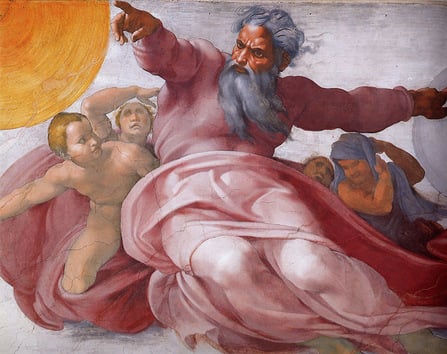
Abraham recognised that there is only one true God.
God the Father, Sistine Chapel, by Michelangelo, c.1512
Yes, like adolescents who haven’t yet resigned to living in denial of the immensely corrupt state of humans, and who, as a result, live in an overwhelmed state of distressed horror and concern about it, the great prophets of old like Abraham, Moses, Plato and Christ were very rare examples of extremely well nurtured and sound unresigned adults living during the last 11,000 years who could see how immensely corrupted the human race has become.
For example, Christ gave this extremely truthful, unresigned description of the mad-with-pain-and-anger, utterly dishonest and deluded resigned world that we have been living in: ‘O bitterness of the fire [psychological upset anger, egocentricity and alienation] that blazes in the bodies of men and in their marrow, kindling in them night and day, and burning the limbs of men and making their minds become drunk and their souls become deranged…Woe to you, captives, for you are bound in caverns [so this is another Plato-like reference to being imprisoned in a ‘cave’ of ‘darkness’, and being ‘fuddled’ or drunk or]! You laugh! In mad laughter you rejoice [pretend you’re happy and all is well when the truth is you’re overwhelmed with suffering and despair]! You neither realize your perdition, nor do you reflect on your circumstances, nor have you understood that you dwell in darkness and death! On the contrary, you are drunk with the fire and full of bitterness. Your mind is deranged on account of the burning that is in you, and sweet to you are the poison and the blows of your enemies! And the darkness rose for you like the light, for you surrendered your freedom for servitude! You darkened your hearts and surrendered your thoughts to folly, and you filled your thoughts with the smoke of the fire that is in you! And your light has hidden in the cloud [of darkness] and the garment that is put upon you, you [pursued] [with deceit]. And you were seized by the hope that does not exist. And whom is it you have believed? Do you not know that you all dwell among those who [lie] [… and you boast] as though [you had hope]. You baptized your souls in the water of darkness! You walked by your own whims!’ This amazingly honest quote comes from the Book of Thomas, which is a recording of a conversation Christ had with one of his disciples called Thomas. (As an aside, I think it’s interesting that earlier in this conversation, when Christ says to Thomas ‘it has been said that you are my twin and true companion’, I think Christ is referring to Thomas being one of the rare unresigned people like himself, and such a person would have been a ‘true companion’ in Christ’s lonely life of being able to see the corrupted state of humans and the need to do something about it.)
I might include these two other extremely honest, clearly unresigned descriptions of the true horror of the human condition. Firstly, from the young American heavy metal band With Life In Mind: ‘It scares me to death to think of what I have become…I feel so lost in this world’, ‘Our innocence is lost’, ‘I scream to the sky but my words get lost along the way. I can’t express all the hate that’s led me here and all the filth that swallows us whole. I don’t want to be part of all this insanity. Famine and death. Pestilence and war. A world shrouded in darkness…Fear is driven into our minds everywhere we look’, ‘Trying so hard for a life with such little purpose…Lost in oblivion’, ‘Everything you’ve been told has been a lie…We’ve all been asleep since the beginning of time. Why are we so scared to use our minds?’, ‘Keep pretending; soon enough things will crumble to the ground…If they could only see the truth they would coil in disgust’, ‘How do we save ourselves from this misery…So desperate for the answers…We’re straining on the last bit of hope we have left. No one hears our cries. And no one sees us screaming’, ‘This is the end’ (Grievances album, 2010).
Secondly, the great Scottish psychiatrist R.D. Laing’s equally honest description of the resigned to living in denial of our horrifically corrupted, split-from-our-true-selves, soul-repressed, deeply alienated human condition: ‘Our alienation goes to the roots. The realization of this is the essential springboard for any serious [honest, effective] reflection on any aspect of present inter-human life…We are born into a world where alienation awaits us. We are potentially men, but are in an alienated state [p.12 of 156] …the ordinary person is a shrivelled, desiccated fragment of what a person can be. As [resigned] adults, we have forgotten most of our childhood, not only its contents but its flavour; as men of the world, we hardly know of the existence of the inner world [p.22] …The condition of alienation, of being asleep, of being unconscious, of being out of one’s mind, is the condition of the normal man [p.24] …between us and It [our soul] there is a veil which is more like fifty feet of solid concrete. Deus absconditus [God has absconded]. Or [more precisely] we have absconded [from God/the soulful, cooperative, selfless and loving integrated state] [p.118] …The outer divorced from any illumination from the inner is in a state of darkness. We are in an age of darkness. The state of outer darkness is a state of sin—i.e. alienation or estrangement from the inner light [p.116] …We are all murderers and prostitutes…We are bemused and crazed creatures, strangers to our true selves, to one another’ [pp.11-12] (The Politics of Experience and The Bird of Paradise, 1967). ‘We are dead, but think we are alive. We are asleep, but think we are awake. We are dreaming, but take our dreams to be reality. We are the halt, lame, blind, deaf, the sick. But we are doubly unconscious. We are so ill that we no longer feel ill, as in many terminal illnesses. We are mad, but have no insight [into the fact of our madness]’ (Self and Others, 1961, p.38 of 192). ‘We are so out of touch with this realm [where the issue of our immensely corrupted human condition lies] that many people can now argue seriously that it does not exist’ (The Politics of Experience and The Bird of Paradise, p.105).
In the case of the unresigned exceptionally sound and honest thinking prophets, being able to see the full horror of the extremely upset world of humans around them they realised there was an absolutely paramount need to do something about it. So Abraham gave us monotheism, a sound appreciation of the one great truth of Integrative Meaning that upset humans should try to respect and live in accordance with. And Moses formulated the Ten Commandments to help restrain everyone’s upset. And Plato gave philosophy, which the dictionary defines as ‘the study of the truths underlying all reality’, in particular ‘the study’ of the all-important ‘underlying’ ‘truth’ of humans’ immensely corrupted condition, the best possible honest orientation and assistance (see Video/F. Essay 11).
To now look at what Christ did about the horrific suffering of humans that his unresigned, exceptionally sound mind could see. In the Gospel of Thomas (which is different to the Book of Thomas that I quoted from above), Christ gave this further description of his horror at the extent of the corruption in humans when he said, ‘I stood in the midst of the world and…found all men drunken [behaving in a deranged, mad way]…And my soul grieves over the sons of men, because they are blind in their heart, and see not [they are resigned to living in alienated denial of the truth of their horrifically corrupted condition]’ (saying 28). (Again, this is the same soul-sensitive, unresigned insight Plato had when, as mentioned earlier, he described resigned, ‘cave’-dwelling humans as being ‘fuddled [drunk]’ and unable ‘to see clearly’.) ‘Griev[ing] over the sons of men, because they are blind in their heart, and see not’, what Christ did to help the immensely psychologically upset human race was create a religion around his soundness for them to defer to and live through. That religion, which has more followers than any other, is Christianity (see par. 877 of FREEDOM). (I might mention that this call to action that Christ felt when he ‘stood in the midst of the world’ gone mad, was similar to the call to action the great prophet Isaiah felt when ‘the Lord’, which is the great overarching truth of the integrative meaning of existence, in effect said to him, ‘“Whom shall I send? And who will go for us?” And I [Isaiah] said, “Here am I. Send me!”’ (Isa. 6:8).)
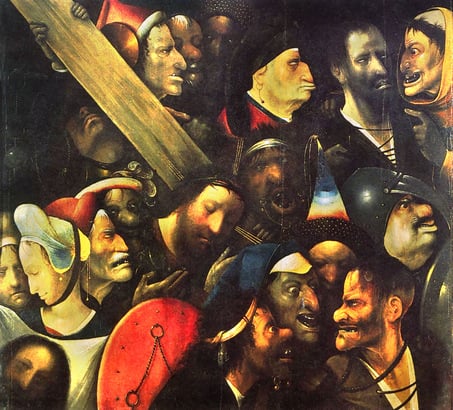
‘I stood in the midst of the world and…found all men drunken [deranged]’.
Christ Carrying the Cross by Hieronymus Bosch, c.1515
In a religion, rather than adhering to what your overly upset self wants to do and say, you put your faith in and lived through supporting the unresigned sensitivity, empathy, integrity and truth of a prophet’s life and words, a deferment that brings immense personal relief. As it says about Christianity in the New Testament of the Bible, ‘if anyone is in Christ, he is a new creation; the old has gone, the new has come!’ (2 Cor. 5:17). You were, in effect, ‘reborn’ from your corrupted condition. As it says in the Bible, ‘to fulfil what was said through the prophet Isaiah:…“[that] the people living in darkness…those living in the land of the shadow of death [living in an extremely soul-exhausted, psychologically-upset, resigned, blocked-out-from-the-truth, alienated, Plato’s-cave-imprisoned condition] a light has dawned [an unresigned, sound, truthful, non-alienated, innocent, soulful, out-of-cave-living person has emerged].” From that time on Jesus [that sound person] began to preach, “Repent” [acknowledge your corrupted condition and come and live through support of my truthful, sound world]’ (Matt. 4:14-17).
(Unless otherwise specified, I have drawn the rest of the material in this essay, which I should mention expands on the brief explanation of religion provided in F. Essay 35—and in its book version, Death by Dogma—from paragraphs 929–939 of my book FREEDOM.)
Thus, Christianity allowed overly upset, soul-dead humans to be ‘born again’ (John 3:3), to having ‘crossed over from death to life’ (John 5:24). As Christ authoritatively said about his upset-and-alienation-free, sound self, ‘I and the Father are one [I am not a soul-devastated, resigned, alienated person having to live in denial of Integrative Meaning and of the truth of the human race’s corrupted condition]’ (John 10:30); ‘I am the way and the truth and the life. No-one comes to the Father [into alignment with the integrated state] except through me’ (John 14:6); ‘if I do judge, my decisions are right, because I am not alone. I stand with the Father’ (John 8:16) [I think truthfully, effectively and confidently in a holistic, inductive way because I don’t live in a resigned, insecure, afraid, mechanistic, deductive, uncertain state of denial of such fundamental truths as Integrative Meaning and of the 2-million-year corrupted state of the human condition—hence Christ ‘taught as one who had authority and not as their [mechanistic, reductionist, deductive, Plato’s-cave-dwelling, dishonest] teachers of the law’ (Matt. 8:29), and was able to ‘get such learning without having studied [in the human-condition-avoiding, dishonest, mechanistic, reductionist, resigned world of denial]’ (John 7:15), indeed, he was able to ‘explain everything’ (John 4:25)]; and when accused of being a dangerously deluded megalomaniac cυlt leader, ‘the prince of demons’ (Mark 3:22), Christ pointed out, but how can ‘a bad tree bear good fruit [how could I be sound enough to confront and look into the human condition and ‘explain everything’ and yet be so unsound as to be a deluded megalomaniac, charlatan, misleader of people?]’ (Matt. 7:18); ‘By myself I can do nothing; I judge only as I hear, and my judgment is just, for I seek not to please myself but him who sent me [I am not a resigned, insecure, egocentric person, rather someone who follows what his Integrative-Meaning-acknowledging, truthful, unresigned mind says is right]’ (John 5:30); ‘You are of this world; I am not of this world [I am not resigned and living in denial of truth]’ (John 8:23); ‘Why is my language not clear to you? Because you are unable to hear what I say…The reason you do not hear is that you do not belong to God [living in a resigned state of denial of the human condition causes you to suffer from a ‘deaf effect’ where you’re unable to take in or ‘hear what I say’ about the horrifically corrupted state of the human condition (see The Great Guilt that causes the Deaf Effect and Video/F. Essay 11)]’ (John 8:43-47); ‘The light shines in the darkness, but the darkness [the Plato’s-cave-dwelling, human-condition-avoiding resigned] has not understood it’ (John 1:5); ‘I came into the world, to testify to the truth [to counter all the dishonest denial and provide a place of refuge from all that madness]’ (John 18:37); ‘I have spoken openly to the world…I said nothing in secret [I haven’t been intimidated by all the dishonest denial that is being practised in the world]’ (John 18:20); ‘The world…hates me because I testify that what it does is evil [I tell the truth about the 2-million-year, soul-corrupted state of the human condition]’ (John 7:7); ‘You are ready to kill me, because you have no room for my word [no room for my unresigned truth]’ (John 8:37); ‘I am the light of the world. Whoever follows me will never walk in darkness [never have to live in a soul-destroyed and truth-denying corrupted state], but will have the light of life’ (John 8:12); ‘I am the resurrection and the life [through me, your ideal, soulful true self can live again]’ (John 11:25); and, ‘I have overcome the world [I have stood firmly by the truth and defied your world of denial, even under the threat of you being ‘ready to kill me’ for my honesty]’ (John 16:33). (With regard to the same attacks made upon myself [Jeremy Griffith] and the WTM for daring to confront and bring redeeming and healing understanding to the corrupted state of the human condition, see the Persecution of the WTM and F. Essay 56, and also see F. Essay 54: The accusation of hubris about the extraordinary claims being made about FREEDOM.)
‘You are ready to kill me, because you have no room for my word.’
Christ with Mocking Soldier by Carl Bloch, c.1872
Yes, Christ wasn’t a pseudo idealistic false prophet pretending to be a soft, sensitive and loving person, as pseudo idealists like to portray Christ as being in order to identify with him (pseudo idealism is explained in my booklet Death by Dogma: The biological reason why the Left is leading us to extinction, and the solution, which is also reproduced in F. Essay 35), rather he was a sound, strong person whose central talent was to defy all the dishonest, bullshit, denial coming from both the human-condition-avoiding mechanistic world, and deluded pseudo idealistic world—a point the prophet Kahlil Gibran was making when he wrote, ‘Humanity looks upon Jesus the Nazarene as a poor-born who suffered misery and humiliation with all of the weak. And He is pitied, for Humanity believes He was crucified painfully…And all that Humanity offers to Him is crying and wailing and lamentation. For centuries Humanity has been worshipping weakness in the person of the saviour. The Nazarene was not weak! He was strong and is strong! But the people refuse to heed the true meaning of strength. Jesus never lived a life of fear, nor did He die suffering or complaining…He lived as a leader; He was crucified as a crusader; He died with a heroism that frightened His killers and tormentors. Jesus was not a bird with broken wings; He was a raging tempest who broke all crooked wings. He feared not His persecutors nor His enemies. He suffered not before His killers. Free and brave and daring He was. He defied all despots and oppressors. He saw the contagious pustules and amputated them…He muted evil and He crushed Falsehood and He choked Treachery’ (‘The Crucified’, The Treasured Writings of Kahlil Gibran, 1951, pp.231-232 of 902).
So, like Moses, Christ was sound and secure enough in himself to fully confront and see the extent of the upset in the human race and, therefore, the extreme need for something to be done about it, which, in Christ’s case, led him to realise that he had to create a religion around his soundness. It was a vision and act of extreme clarity of thought and extraordinary strength of character, especially since there was no science in his day, no first-principle-based insights into the workings of our world, that would have allowed him to find reconciling explanations for all the truths about the corrupted human condition that he could see, which meant that all he could do was offer his soundness as a place for upset humans to align themselves with and by so doing derive some relief from the horror of their corrupted condition. It was also a vision of extraordinary strength of character because there were so many deluded false prophet charlatans misleading people and discrediting what Christ had to proclaim about himself for the sake of ensuring a future for the human race. Crucifixion was the price he had to pay for standing up so straight in a forest of bent and twisted timber. He literally had to offer his life so that corrupted humans would have a refuge where they could relieve their suffering—he had to be prepared to accept that ‘unless an ear of wheat falls to the ground and dies, it remains only a single seed’ (John 12:24), as he so immensely bravely described his situation! No wonder his message of salvation rose up after his death, which his ‘resurrection’ from the grave (see, for example, Luke 24, ‘The Resurrection’) was actually the metaphorical or symbolic recognition of. What a phenomenal, almost beyond comprehension, prophet Christ was. Imagine the magnitude of what he was undertaking and then imagine how alone he must have felt not being able to share the weight of his task with those consumed with life in the everyday, messed up, self-preoccupied, resigned, dishonest world around him—as he lamented, ‘Foxes have holes and birds of the air have nests, but the Son of Man [a sound expression of the integrated state that humans once lived in and could again align themselves with if he completed his mission] has no place to lay his head’ (Matt. 8:20). (Incidentally, if the Thomas in the Book of Thomas is the same Thomas who doubted Christ rose from the dead (see John 20:24-25) (which some Biblical scholars think he may not be), then, being unresigned, as I suggested earlier the Thomas in the Book of Thomas was, he could have been relatively sound and so possibly wouldn’t have needed to believe in a supernatural resurrection of Christ like the other possibly resigned, more insecure, truth-evading disciples. He possibly didn’t need a non-confronting, truth-avoiding, symbolic way of believing that Christ’s message of salvation would be taken up or rise up after Christ’s crucifixion.)
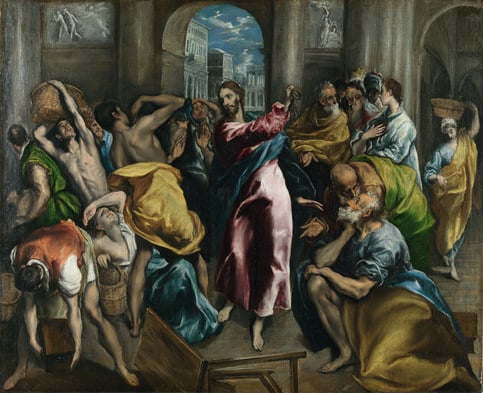
‘standing up so straight in a forest of bent and twisted timber’
Christ Driving the Traders from the Temple by El Greco, c.1600
(I might mention here that the so-called ‘Trinity’ of main influences or forces on Earth that many religions recognise can now be explained, with ‘God the Father’ being Integrative Meaning, and ‘God the Son’ and ‘God the Holy Ghost or Spirit’ being, respectively, the two great tools for developing integration or order, namely the gene-based and nerve-based learning systems that our instincts and conscious intellect represent. Since Christ was an exceptionally uncorrupted expression of our cooperative and loving moral instincts, he did represent ‘God the Son’, or ‘the Son of Man’ as he referred to himself in the quote in the above paragraph, and our intellect, particularly a Godly, Integrative-Meaning-acknowledging, inspired and guided intellect, is ‘God the Holy Ghost or Spirit’ (see par. 746 of FREEDOM). The English explorer and philosopher Bruce Chatwin acknowledged the unresigned soundness and sensitivity of Christ and also of the relatively innocent ‘races’ (see F. Essay 28) when he wrote these extraordinarily honest words: ‘There is no contradiction between the Theory of Evolution and belief in God [Integrative Meaning] and His Son [the uncorrupted expression of our original instinctive orientation to Integrative Meaning] on earth. If Christ were the perfect instinctual specimen—and we have every reason to believe He was—He must be the Son of God. By the same token, the First Man was also Christ’ (What Am I Doing Here, 1989, p.65 of 367). The great poet and artist William Blake was essentially making the same point when he wrote that ‘All [our distant ancestors] had originally one language, and one religion: this was the religion of Jesus, the everlasting Gospel. Antiquity preaches the Gospel of Jesus [the Gospel of original innocence]’ (Descriptive Catalogue, 1809). Yes, since the common dictionary definition of a ‘prophet’ is ‘someone who speaks for God’ and Christ was an exceptionally uncorrupted expression of our original instinctive self or soul’s orientation to Integrative Meaning, then Christ spoke for God; he was a prophet. In terms of being unresigned, Christ was certainly amongst ‘the firstborn from among the dead [resigned]’ (Bible, Col. 1:18) (see par. 744 of FREEDOM). It should also be clarified that while Chatwin described Christ as ‘the perfect instinctual specimen’, meaning he was free of upset, as a member of the completely innocent early Childman variety of humans would be, he obviously wasn’t. While he was exceptionally innocent and sound, he nevertheless was a member of extremely upset Homo sapiens sapiens. Prophets were only relatively innocent. For example, all the frustration and despair in modern humans was apparent when, as young men, Moses ‘killed the Egyptian’ he saw ‘beating a Hebrew’ (Exod. 2:11-12), and Christ angrily ‘overturned the tables of the money-changers’ in the temple (Matt. 21:12 & Mark 11:15). Moses’ and Christ’s relatively corrupted condition was also apparent when they found they had to fast for ‘forty days and forty nights’ (Deut. 9:9 & Matt. 4:2) to break up the alienation in their minds and gain the deep access to their all-sensitive souls that they needed in order to think completely truthfully and thus effectively. (see par. 877 of FREEDOM))
Jeremy Griffith’s 2004 drawing of Jesus Christ as the ‘lamb of God’ (John 1:29, 36),
someone exceptionally innocent, free, centred, secure and natural.
It is little wonder then that Christ is considered ‘the most famous man in the world’ (Jesus Revealed, National Geographic Channel, 2009), and that most of the world dates its existence around his life, as either BC or AD, ‘Before Christ’ or ‘Anno Domini’, which translates as ‘in the year of our Lord’, referring to the year of Christ’s birth. This essay captures the marvel of Christ: ‘Here is a man who was born in an obscure village, the child of a peasant woman. He grew up in another village. He worked in a carpenter shop until He was thirty. Then for three years He was an itinerant preacher. He never owned a home. He never wrote a book. He never held an office. He never had a family. He never went to college. He never set foot inside a big city. He never travelled two hundred miles from the place He was born. He never did one of the things that usually accompany greatness. He had no credentials but Himself. While still a young man, the tide of public opinion turned against Him. His friends ran away. One of them denied Him; another betrayed Him. He was turned over to His enemies. He went through the mockery of a trial. He was nailed to a cross between two thieves. While He was dying His executioners gambled for the only piece of property He had on earth—His coat. When He was dead, He was placed in a borrowed grave through the pity of a friend. Nineteen long centuries have come and gone, and today He is the central figure of the human race and the leader of the column of progress. I am far within my mark when I say that all the armies that ever marched, and all the navies that ever sailed, and all the parliaments that ever sat, and all the kings that ever reigned, put together, have not affected the life of Man upon this earth as powerfully as has the One Solitary Life!’ (‘One Solitary Life’, an essay adapted from a sermon by Dr James Allan Francis titled ‘Arise Sir Knight’, The Real Jesus and Other Sermons, 1926, pp.123-124). (see pars 615 & 930 of FREEDOM)
Yes, as my headmaster when I was at Geelong Grammar School, Sir James Darling, wrote, Christ’s life ‘was incalculably the most important event in human history, as we understand it, up to the present’ (The Education of a Civilized Man, 1962, p.206 of 223).
Since religions have been marvellous ways for humans to save themselves from living in a horrifically upset angry, egocentric and alienated state, the criticism that could be levelled at someone extremely upset, like Genghis Khan or Adolf Hitler, is that they didn’t take up religion. Or, if they did claim to be religious, they weren’t being genuinely religious, genuinely deferring to one of the great prophets religions have been founded around and, by so doing, becoming part of the prophets’ world of soundness and love. Indeed, for the exceptionally upset, the aspect of religion that made it so superior to Moses’ strategy of imposed discipline, which his Ten Commandments represented, is precisely that it allowed you to delude yourself that you were being ‘born again’, ‘resurrect[ed]’ from your corrupted state. Rather than having good behaviour forced upon you through fear of punishment, as was the case with the imposed discipline of the Ten Commandments, religion allowed you to feel that not only were you actively participating in goodness, you had actually become a good, selfless, loving, ideal person—that you were ‘righteous’—which provided immense relief from the guilt of being overly upset. The apostle St Paul gave what was possibly the best sales pitch for born-again Christian life when he wrote, ‘Now if the ministry that brought death, which was engraved in letters on stone [Moses’ Ten Commandments that were enforced by the threat of punishment], came with glory [because they brought society back from the brink of destruction]…fading though it was [there was no sustaining positive in having discipline imposed on you], will not the ministry of the Spirit be even more glorious? If the ministry that condemns men is glorious, how much more glorious is the ministry that brings righteousness! For what was glorious has no glory now in comparison with the surpassing glory. And if what was fading away came with glory, how much greater is the glory of that which lasts!’ (Bible, 2 Cor. 3:7-11). (See F. Essay 33 for an analysis of St Paul’s conversion experience.)
Thus, in coping with the now raging levels of upset in humans, the first ‘glorious’ improvement on destructively living out that ferocious upset was Imposed Discipline, which was enforced through fear and punishment. But since discipline provided little in the way of joy or inspiration for the mind or ‘spirit’ it was hard to maintain, it didn’t ‘last’, it was ‘fading’, especially in comparison to the immensely guilt-relieving, ‘righteous’, ‘do good in order to make yourself feel good’ way of living offered by that next ‘surpassing glory’ of religion.
In this transition, it is obvious that the ‘do good in order to delude yourself that you actually are a kind, loving, selfless, good person and not horrifically corrupted’ aspect of religion was very important, which means that only being indirectly honest about being extremely corrupted when you became religious was key to the effectiveness of religion—because if you had to be directly honest about being horribly corrupted you couldn’t possibly delude yourself you were actually a kind, loving, selfless, good, not-horribly-corrupted person. This ability to not just feel good (because you were now behaving in a good way and not in the incredibly destructive way you had been), but to use this fact to delude yourself you were actually a loving, kind, selfless, good, upset-free, ideal, guilt-free, human-condition-solved, ‘righteous’ person depended on this aspect of only indirectly acknowledging your corrupted state. So although in taking up religion you were being indirectly honest about being corrupted, you were still relying on being able to delude yourself that you weren’t corrupted. In short, religions allowed people to admit to being horribly corrupted without having to suffer the confronting consequences of making such an admission. So just as humans could not directly acknowledge their corrupted state (because without the explanation of the human condition they couldn’t defend and thus cope with that truth), religions similarly depended on not directly acknowledging/recognising the soundness of the prophet around whom the religion was founded, even though acknowledging/recognising his soundness was an intrinsic part of the honesty that made religions so special and effective. Religions depended on not recognising—at least consciously, explicitly recognising—that prophets were simply a sound variety of ordinary people, because that truth would directly confront their followers with the unbearable truth of their own lack of soundness. Instead, at least at the surface level of their conscious awareness, religious adherents viewed their prophets as being supernatural, divine, heavenly, from-another-world beings, because that way they could avoid any comparison with themselves. In fact, as is described in F. Essay 35 (and its book version, Death by Dogma) the more upset and insecure the religious person, the more fundamentalist/literal/superficial they had to be in their interpretations of religious scripture and the prophet himself—because too much honesty was impossibly confronting.
A good example of how religions depended on not directly acknowledging the soundness of the prophet it was founded around, because it would be unbearably confronting of the truth of the adherents’ lack of soundness, is that Christ was said to have performed supernatural feats or ‘miracles’, such as his supposed ability to miraculously heal people. But with the human condition now understood, we can actually safely explain and demystify such ‘miracles’. While the uncorrupted soundness of Christ and the denial-free, unresigned words he spoke could be extremely confronting, it could also centre people and make them whole and well—it could release them from their psychosis, from their crippled state of living in disconnected denial of their soul. And, as physicians are increasingly recognising, many, if not most, physical ailments are psychosomatic or soul-distressed in origin. Now that we can safely admit that humans’ original instinctive state was one of living in a psychologically secure, happy and loving state, we can understand exactly what Christ meant when he said, ‘Come to me, all you who are weary and burdened, and I will give you rest…for I am gentle and humble in heart, and you will find rest for your souls. For my yoke is easy and my burden is light’ (Bible, Matt. 11:28-30). Christ obviously experienced a childhood that was extraordinarily well nurtured with unconditional love, which his alienation-free, sound, innocent, symbolically ‘virgin mother’ (see Matt. 1:23 & Luke 1:26-34) provides recognition of (this, incidentally, is another example of how the Bible contains all the truth about human life, this time recognising that, as is explained in F. Essay 21, nurturing is what made us human). Such an alienation-free, nurtured upbringing is why Christ wasn’t ‘weary and burdened’ by the human condition and his ‘yoke’ was ‘easy’ and his ‘burden’ ‘light’—he was still able to fully access all the love and security of our original instinctive soul’s world, which meant he and his words were immensely realigning and reassuring for soul-destroyed, human-condition-afflicted, soul-repressed and soul-disconnected resigned humans.
Jeremy Griffith’s 2006 tender drawing of the archetypal image of the Madonna and child.
Jeremy has said about the image of the Madonna and child: “That this image is such a feature
of Christian mythology is powerful recognition that it was the relatively alienation-free
unconditional love Christ received from his mother that enabled him to be the exceptional
denial-free thinking prophet that he was. When the great Scottish psychiatrist R.D. Laing wrote
that ‘Each child is a new beginning, a potential prophet’ (The Politics of Experience and The Bird of Paradise,
1967) he was recognising how much the upset, alienated world of humans today has corrupted
our all-loving and all-sensitive true self or soul. As the great playwright Samuel Beckett said
about the brevity of innocence in the lives of most humans now: ‘They give birth astride of a
grave, the light gleams an instant, then it’s night once more’ (Waiting for Godot, 1955)!”
Further, Christ’s unevasiveness allowed him to see through people’s denials and think truthfully and effectively about their situation—like the woman who had spoken to Christ at a well and later said to her townspeople, ‘Come see a man who told me everything I ever did’ (John 4:29). Christ could see into the human condition, and his ability to do so meant he could see where and why people were ‘lost’ or alienated. He could ‘understand’ them, not in terms of a first principle-based explanation of their condition—because in Christ’s time there was no first principle scientific knowledge with which to explain the human condition—but in terms of being able to see into their situation, and this ‘understanding’ or appreciation represented true or pure love or compassion. To quote a reference to the work of psychoanalyst Carl Jung: ‘…Jung’s statement that the schizophrenic ceases to be schizophrenic when he meets someone by whom he feels understood. When this happens most of the bizarrerie which is taken as the “signs” of the “disease” simply evaporates’ (R.D. Laing, The Divided Self, 1960, p.165 of 218). The word ‘holy’, so often used to describe these great prophets, has the same origins as the Saxon word ‘whole’, which means ‘well, entire, intact’, and is thus a recognition of the prophets’ wholeness or soundness or lack of separation or alienation from our species’ sound, innocent, all-loving and all-sensitive original natural state.’ Dictionaries similarly inform us that the word ‘healing’ is also derived from the word ‘whole’. Also, the circular glow of light or ‘halo’ often drawn around the heads of religious prophets was another indicator of their soulful purity, innocence, soundness and holiness. Yes, the wholeness or soundness or lack of alienation of prophets is why prophets were considered holy and it is also why they were able to heal. So labelling Christ’s ability to realign people with the true world as a ‘miracle’ protected upset humans from having to admit to Christ’s soundness or innocence and, by inference, their lack of soundness or innocence.
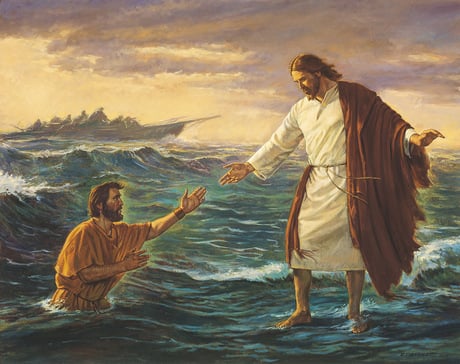
Jesus Walking on the Water, a literal interpretation
of the parable by the Church of Latter-Day Saints
Not surprisingly then, instances of other supposed ‘miracles’ abound—consider, for example, the ‘feeding the multitude with loaves and fishes’ and ‘walking on water’ supernatural feats that supposedly took place when Christ spoke to a large gathering of people. Being unresigned, the penetrating truthfulness of what Christ had to say would have astonished the resigned minds of those listening. Christ was able to venture out into what the resigned mind knew as a terrifyingly dangerous minefield and, as it were, do somersaults and run and skip around out there—grapple with the human condition with impunity. As such, it would have been such a mesmerising experience listening to Christ that even though the resigned mind would have soon afterwards begun to block out all the truths that were being brought to the surface as it realised their confronting implications, the listeners would have been so astonished and enthralled that their hunger after such a long talk would have been satisfied with the distribution of what little pooled food there was available. Later, however, after the event and unable to acknowledge the astonishing truth about what had really taken place, the resigned mind would have had to have found an evasive way of recognising the extraordinary nature of the occasion—which, in this instance, was achieved by saying, ‘I remember a miracle where a few fish and some loaves of bread fed a mass of people.’ Similarly, so overwhelmed would the audience have been by having so much truth emanate from someone, that, years later, some would evasively recall the impact of what happened by saying that, when Christ finally departed at dusk and walked out through the shallows of the lake to his disciples who were waiting in a boat to transport him back across the lake, he had ‘walked on water’! The comedian Spike Milligan spoke the truth about Christ’s miracles when he said: ‘They made him do miracles…“Loaves and fishes, loaves and fishes, just like that!” This isn’t indicative of the man. What he said and preached was enough. Why did he have to raise the dead? Did that make him holier? These are post-Jesus Christ PR stunts, raising the dead, walking on water. I find it an insult to the dignity of the man. I’ve written to The Catholic Herald about this. The outraged letters I’ve got! I said the Turin Shroud was a load of shit, I’ve said it for 15 years. Jesus Christ didn’t need to do tricks’ (Bulletin mag. 26 Dec. 1989).
Yes, under the duress of the human condition, the effectiveness of religion depended on not directly recognising the soundness of the prophet around whom your specific religion was founded, because that would make the truth of your lack of soundness unbearably confronting, and obviously make it impossible to delude yourself that you had become a kind, loving, selfless, ‘righteous’, good, not-horribly-corrupted person—even though the recognition you were giving to the prophet was in itself an indirect acknowledgment of your corrupted condition. So religion involved maintaining a very delicate balance of delusion and honesty, for while it offered a way of only being implicitly honest about the corrupted state, its very existence depended on its adherents making at least a subconsciously relieving, honest acknowledgment of their own corrupted state, and on observers making at least, on a similarly subconscious level, a relieving, truthful recognition of that corruption; it was this honesty that made religions so special and effective. On the surface of conscious awareness, however, each individual adherent also depended on being able to maintain their facade and delusions about being an upset-free, ‘righteous’ person, which meant there was still a great deal of dishonesty involved in religion.
The cartoon series The Simpsons actually provides a wonderful illustration of the subtleties involved in religion. In the series, Ned Flanders is the born-again religious character who is typically portrayed as having a self-satisfied, ‘I-occupy-the-moral-high-ground’ attitude over the still-human-condition-embroiled Homer Simpson. Ned’s posturing drives Homer crazy with frustration because Homer intuitively knows Ned is deluding himself in thinking his Christianity gives him the moral high ground—that he is the more together, sound person and is on the right track—but Homer can’t explain why Ned is so extremely deluded and totally dishonest in his view of self. Homer can’t explain and thus reveal the truth that real idealism and the truly on track, moral high ground lay with continuing humanity’s upsetting battle to find knowledge, and that Ned had become so upset, so unsound, that he had to abandon that all-important battle and leave it to others to continue to fight, including Homer. Worse, Ned’s pseudo idealistic, deluded abandonment of the battle meant that he has effectively sided against those still trying to win the battle, adding substantially to the opposition they had to overcome. (As mentioned, F. Essay 35 is the definitive presentation of how dangerous pseudo idealistic dogma has become, and is such a significant essay it has also been produced as the standalone booklet titled Death by Dogma. F. Essay 36 explains how the legitimate transformation that is now possible is the only way to save Western civilisation from this danger.) But even Ned is intuitively aware that he is practising delusion and so has to work hard at maintaining it. Maintaining a delusion meant constantly persuading yourself, and others, that you are right. Stridency and fanaticism characterised the behaviour of those maintaining a delusion, especially when, in becoming religious for instance, you were practically admitting that you were being deluded about being a sound, together, on track person yourself by having had to defer to a sound prophet.
In summary, the benefit of Imposed Discipline for the resigned, competitive way of living over the born-again, pseudo idealistic way of living was that it did not undermine a person’s participation in humanity’s great battle—it simply provided a means to manage the upset associated with that battle. However, since the religious born-again strategy both minimised the irresponsibility of abandoning the battle, and (despite the degree of delusion it still allowed) minimised the extreme denial involved in becoming born-again, it provided a marvellous way of coping with the by now extremely destructive and unbearable levels of upset and associated guilt that affected nearly the entire human race, and which Imposed Discipline could no longer contain. In fact, because of its degree of honesty and indirect support of the search for knowledge, religion has been by far the most special, the most wonderful form of pseudo idealism to ever be developed. Indeed, it was religion that saved humanity from destruction through the most difficult final stages of its journey to find the redeeming, first principle, scientific understanding of our corrupted condition. Christ acknowledged this ultimate goal of the journey when he looked forward to the time when ‘another Counsellor to be with you forever—the Spirit of truth [the denial-free, truthful, first-principle-based, scientific understanding]…will teach you all things and will remind you of everything [all the denial-free truths] I have said to you’ (John 14:16, 17, 26). He similarly said he looked forward to when, instead of being restricted to ‘speaking figuratively’, we ‘will no longer use this kind of language but will [be able to] tell you plainly about my Father [be able to explain the world of Integrative Meaning in denial-free, human-condition-reconciled, compassionate, understandable, rational, first principle, scientific terms]’ (John 16:25). (It should be pointed out that now that we can explain the incredibly important role religions have played in the human journey, we can see how obscenely arrogant and wrong religion/truth-haters have been, when, for instance, people like Oxford University’s Professor of Public Understanding of Science, Richard Dawkins, have said that ‘“Faith is one of the world’s great evils, comparable to the smallpox virus, but harder to eradicate. The whole subject of God is a bore”…those who teach religion to small children are guilty of “child abuse”’ (‘The Final Blow to God’, The Spectator, 20 Feb. 1999); and when E.O. Wilson, that quintessential exponent of dishonest, human-condition-avoiding mechanistic science (see Video/F. Essay 14 & F. Essay 40), said that ‘What’s dragging us down is religious faith…I would say that for the sake of human progress, the best thing we could possibly do would be to diminish, to the point of eliminating, religious faith’ (‘Don’t let Earth’s tapestry unravel’, New Scientist, 24 Jan. 2015).)
Richard Dawkins’ arrogant dismissal of religion’s contribution
to humanity’s journey to find understanding
However, while religion did save the human race, at the very end of our species’ journey through ignorance other forms of pseudo idealism evolved that have very nearly destroyed humanity. As was described in F. Essay 35 (and its book version, Death by Dogma), these were, progressively, the development of communism or socialism, then the New Age movement, then the Feminist movement, then the Environment or Green movement, then the Politically Correct and Postmodern Deconstructionist movements, and, most recently, ‘Critical Theory’ and its associated ‘Critical Race Theory’ and ‘Critical Gender Theory’ movements. How precious then is it that understanding of the human condition has been found and this terrifying imminent prospect of the death-by-dogma end of the human race has been avoided. (See also F. Essay 55: Endgame for the human race.) FINALLY, AS DESCRIBED IN F. ESSAYS 15 AND 36, WITH THE FINDING OF UNDERSTANDING OF THE HUMAN CONDITION, THE INEFFECTUAL, DELUDED, PSEUDO IDEALISTIC ESCAPE FROM OUR TROUBLED CONDITION IS ABLE TO BE REPLACED BY THE REAL TRANSFORMATION OF HUMANS.

F. Essay 35 and its book version, Death by Dogma, describe the progression that has taken place
over the last 200 years to increasingly dishonest, escapist, deluded and dangerous forms of pseudo idealism
So, the very great denial-free thinking prophets in recorded history, namely Abraham, Moses, Plato and Christ, made the most important contributions to humanity’s great journey to enlightenment. Abraham contributed monotheism to the human journey. Moses gave humanity the most effective form of Imposed Discipline for containing the ever-increasing levels of upset in humans of the Ten Commandments. Christ gave humanity the soundest and thus most effective corruption-and-denial-countering religion. And Plato gave philosophy the best possible orientation and assistance. So we could say that ‘the beauty and taste of roses, rice, potato and a leg of lamb—Moses, Christ, Plato and Abraham—saved the human race’!!
- - - - - - - - - - - - - - - - - -
On this note, we will end this essay with William Wordsworth’s great poem Intimations of Immortality (see F. Essay 31), in which he described prophets as the ‘Eye among the blind’: ‘Thou best Philosopher, who yet dost keep / Thy heritage, thou Eye among the blind / That, deaf and silent, read’st the eternal deep / Haunted for ever by the eternal mind / Mighty Prophet! Seer blest! / On whom those truths do rest / Which we are toiling all our lives to find / In [resigned] darkness lost, the darkness of the grave.’
Watch Jeremy Griffith present the breakthrough redeeming explanation of the human condition in THE Interview; for a fuller explanation read chapter 3 of FREEDOM; and for a summary presentation of the key ‘instinct vs intellect’ explanation watch Video/F. Essay 3. In fact, through doing so, the reader will be able to see from Jeremy’s incredible ability to completely understand and explain the lives of the great prophets (even to have drawn Christ possibly more accurately than has ever been done!), and most amazingly of all, to have reached the pinnacle of truthful thinking by synthesising the human-race-saving explanation of the human condition, how great a prophet he also is.
WTM founding member Tony Gowing with his
version of Jeremy’s ‘beauty and taste’ poem
Discussion or comment on this essay is welcomed—see below.
Please Note, if you are online you can read, print, download or listen to (as a podcast) THE Interview, The Great Guilt, The Great Transformation, Sermon On The Beach or any of the following Freedom Essays by clicking on them below.
INTRODUCTION TO THE EXPLANATION & RESOLUTION OF THE HUMAN CONDITION: THE Interview That Solves The Human Condition And Saves The World! | The Great Guilt that causes the Deaf Effect | The Great Transformation: How understanding the human condition actually transforms the human race | Sermon On The Beach | Freedom Essay 1 Your block to the most wonderful of all gifts | 2 The false ‘savage instincts’ excuse | 3 THE EXPLANATION of the human condition | 4 The ‘instinct vs intellect’ explanation is obvious – short | 5 The transformation of the human race | 6 Wonderfully illuminating interview | 7 Praise from Prof. Prosen | 8 “How this ends racism forever” | 9 “This is the real liberation of women” | 10 What exactly is the human condition? | 11 The difficulty of reading FREEDOM and the solution | 12 One hour summarising talk | 13 The WTM Deaf Effect Course | 14 Dishonest biology leads to human extinction | 15 How your life can immediately be transformed | 16 The Shock Of Change | THE BOOKS: 17 Commendations & WTM Centres | 18 FREEDOM chapter synopses | 19 FREEDOM’s significance by Prof. Prosen | 20 The genius of Transform Your Life | THE OTHER KEY BIOLOGICAL EXPLANATIONS: 21 How did we humans acquire our altruistic moral conscience? | 22 Fossil discoveries evidence our nurtured origins | 23 Integrative Meaning or ‘God’ | 24 How did consciousness emerge in humans? | 25 The truthful biology of life | • Survey seeking feedback | MEN & WOMEN RECONCILED: 26 Men and women reconciled | 27 Human sex and relationships explained | THE END OF RACISM: 28 The end of racism | 29 Can conflict ever end? | RESIGNATION: 30 Resignation | 31 Wordsworth’s all-revealing great poem | MORE ON THE TRANSFORMATION: 32 More on the Transformation | 33 Jeremy on how to become transformed | THE END OF POLITICS: 34 This understanding ends the polarised world of politics | 35 Death by Dogma left-wing threat | 36 Saving Western civilisation from left-wing dogma | 37 The meaning of superhero and disaster films | RELIGION DECIPHERED: 38 Noah’s Ark explained | 39 Christ explained | 40 Judgment Day finally explained | 41 Science’s scorn of religion | MEANING OF ART & CULTURE: 42 Cave paintings | 43 Ceremonial masks explained | 44 Art makes the invisible visible | • Second survey seeking feedback | 45 Prophetic songs | 46 Anne Frank’s faith in human goodness fulfilled | 47 Humour and swearing explained | 48 R.D. Laing’s fearless honesty | ABOUT BIOLOGIST JEREMY GRIFFITH: 49 Jeremy’s biography | 50 Australia’s role | 51 Sir Laurens van der Post’s fabulous vision | 52 Jeremy’s children’s book A Perfect Life | 53 The ‘instinct vs intellect’ explanation is obvious – long | 54 The accusation of hubris | DO WE FAIL OR DO WE MAKE IT? 55 Endgame for the human race | 56 Why there have been ferocious attacks on the WTM | 57 Magnificence of the Transformed State – video 1 | 58 Magnificence of the Transformed State – video 2 | MARKETING: 59 Shouldn’t the WTM’s website be toned down? | 60 The crime of ‘ships at sea’ ‘pocketing the win’ | GENERAL DISCUSSIONS BY JEREMY: 61 General Discussion by Jeremy Aug. 2018 | 62 Jeremy’s Masterpiece Presentation Feb. 2019 | HEALTH & HEALING: 63 Pseudo therapy/healing | 64 Real therapy/healing | From here on are Transformation Affirmations and More Good Info Emails
These essays were created in 2017-2024 by Jeremy Griffith, Damon Isherwood, Fiona Cullen-Ward, Brony FitzGerald & Lee Jones of the Sydney World Transformation Movement Centre. All filming and editing of the videos was carried out by Sydney WTM members James Press & Tess Watson during 2017-2024. Other members of the Sydney WTM Centre are responsible for the distribution and marketing of the videos/essays, and for providing subscriber support.

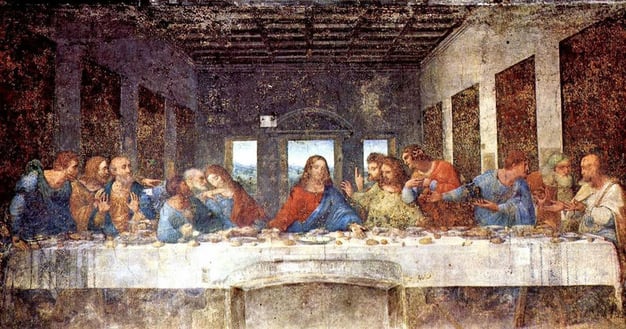
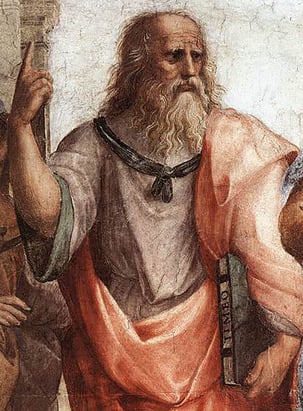
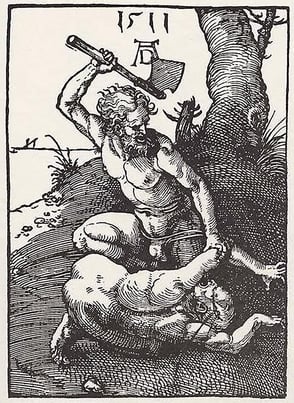
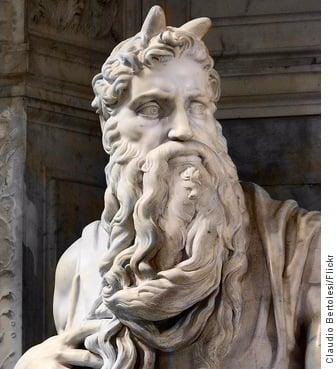
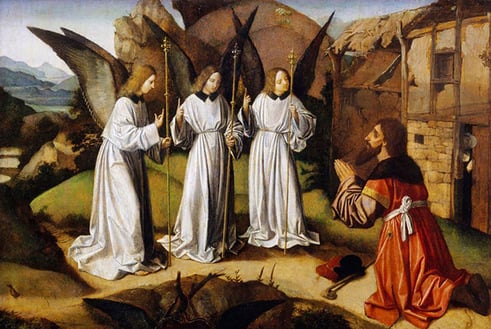
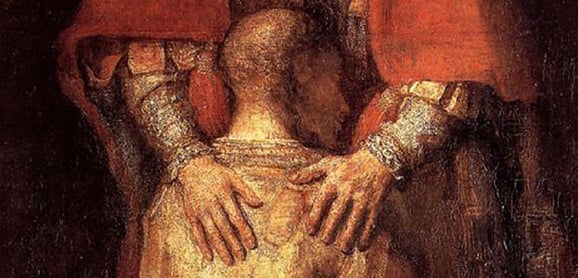
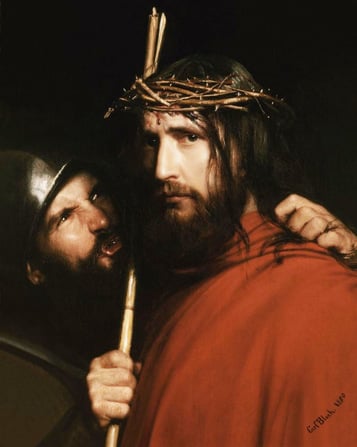
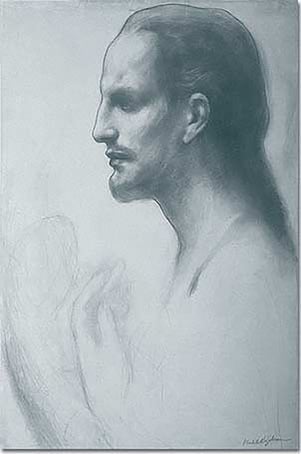
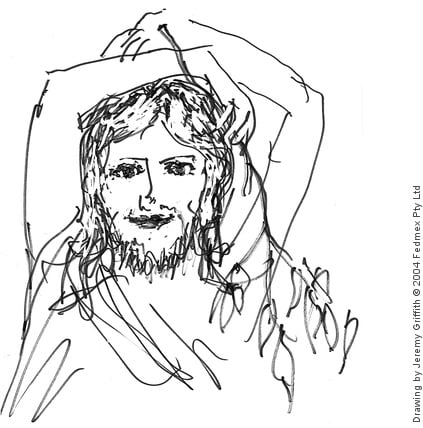
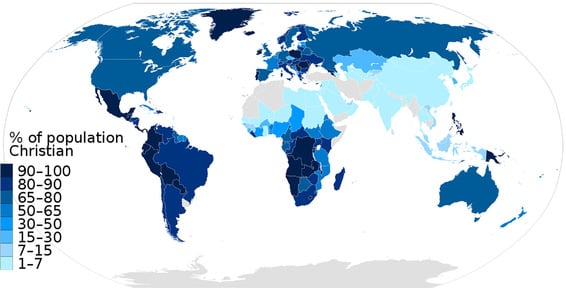
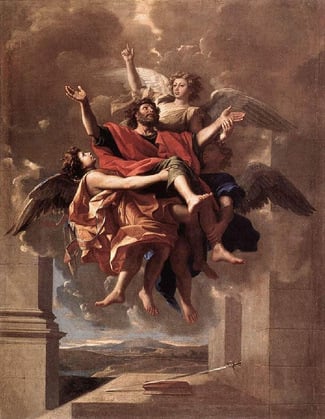
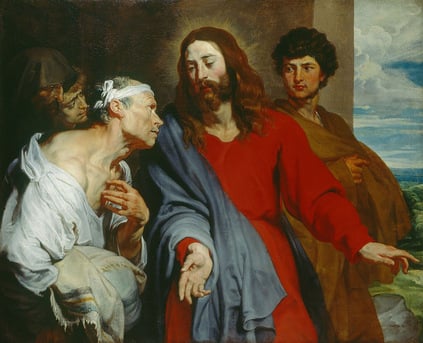
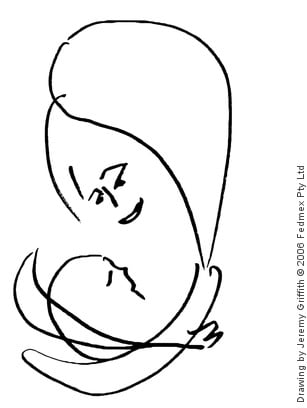
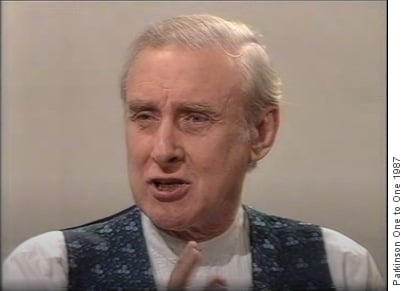
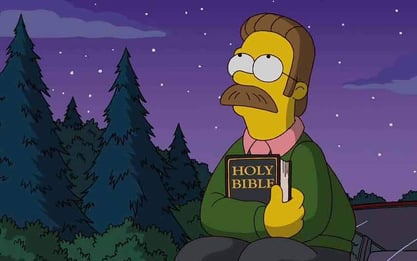
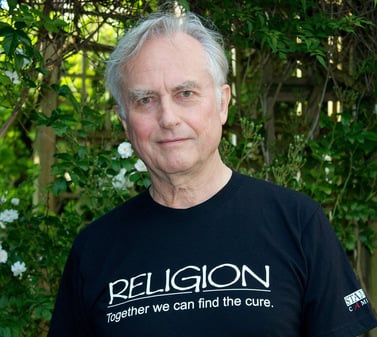
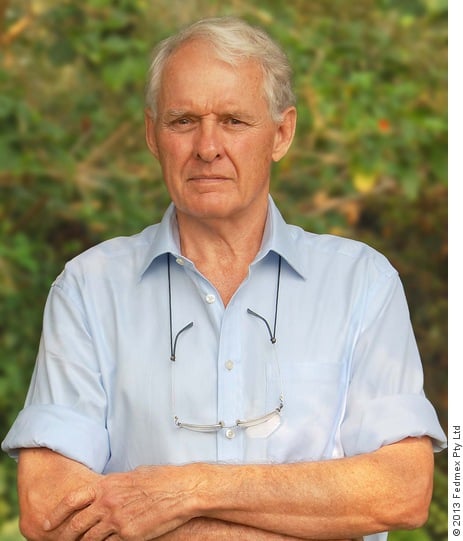


Please wait while the comments load...
Comments